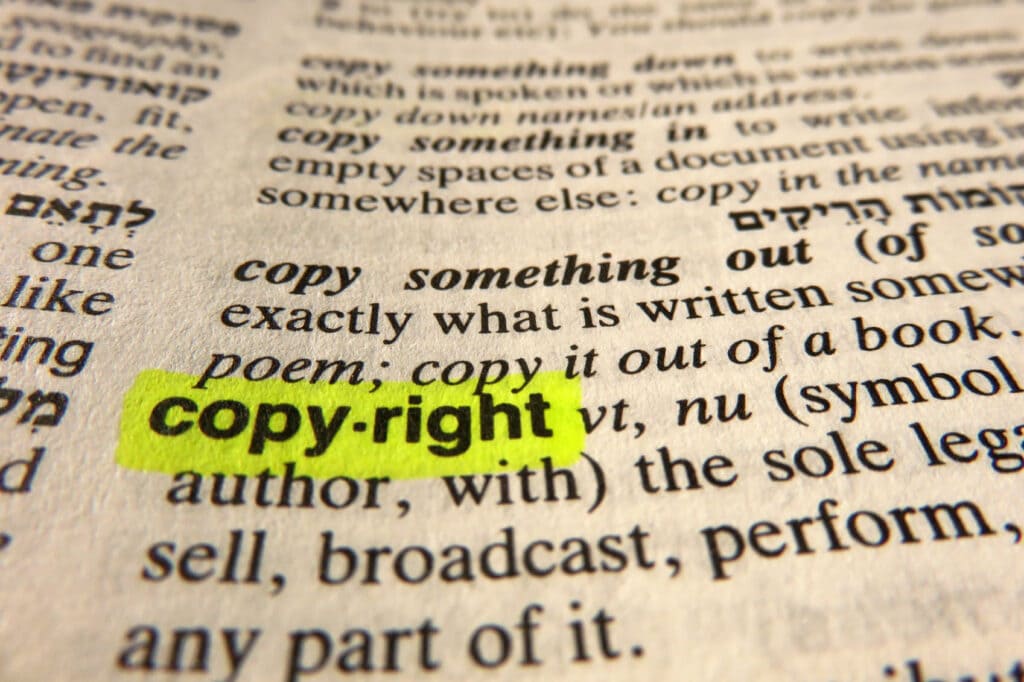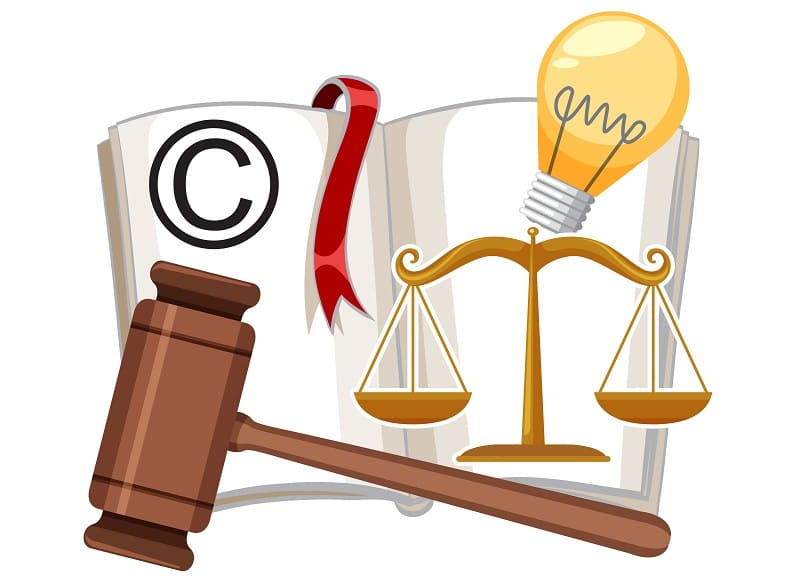Just like any other asset you own, your writing has value and deserves protection against intellectual property pirates. Copyright ownership of your book means you will have the exclusive right and authority to:
- Sell, distribute, and earn from the work
- Reproduce the work in different forms
- Create derivative work, including adaptations, translations, abridgments, and sequels
- Perform or display through art, in both recorded or live form
No other entity will have the right to use the content written by you in any way possible. In case of a copyright breach, you will be entitled to statutory compensation.
Thankfully, copyright protection is available on original work from the moment you start writing a book. The service is available in the United States as well as the United Kingdom and can be extended up to 70 years after your death. Whether you’re writing a single sentence that would take the internet by storm or drafting the next great American novel, you can get copyright protection for your work and immediately own the rights to it.
So if you’re here to learn about copyrighting a book, you’ve landed on the right page. This blog talks about all crucial copyrighting aspects and how to go about the process. So keep reading.
In this blog, we will:
- Talk about the benefits of copyrighting a book
- Options to consider when copyrighting your book title
- Steps to complete your copyrighting process
- Discuss what cost to expect
How to Copyright a Book—The General Rules
A popular question most publishers receive from first-time authors is: How to get a copywrite for a book?
This is because a lot of people confuse copyrighting with ‘copywriting.’ While copyrighting protects your work against theft, copywriting is the occupation of writing the text for marketing or advertising in the form of web copy, articles, blogs, social media posts, etc.
Before you learn more about copyright—or if you’ve landed on this page because you’re trying to understand “how to Copywrite a book title,”—you first need to figure out if your literary work is even eligible. Your book is copyrightable if it meets the following two criteria:
- Your work should be original. Even if it is nonfiction, where you’re trying to share facts and information, it must originate from you and must not consist of factual information copied from elsewhere. Also, it should not be a mere list such as names in the phone book arranged in alphabetical order.
- Your work should be available on a tangible object. You cannot copyright a story you narrate to your kids unless you have it on record or a piece of paper. You may not be required to get literary merit for your book or novel for copyrighting it.
If your work ticks those two boxes, you can go on and copyright a book.
Types of Books That Can Be Copyrighted
You can copyright:
- A book that’s originally written by you—either as a sole entity or as a combined work with another author. This book can be nonfiction, novel, fantasy, cookbook, memoir, poetry, biography, etc.
- A collection of your written work that you’ve shaped into a book, such as a book of short stories or poems.
- Anthology of pre-existing works, where you can only copyright the added material written by you, such as the content needed for the compilation, arrangement, and coordination of the book. Your copyright extension will not cover the underlying material already available.
Anything that falls in any one of the above categories can be copyrighted.

How to Get a Book Copyrighted – Why is it Important to Register Copyright?
Before you worry and think: ‘how do I copyright my book’, you need to learn why registering it is important.
The following are the top advantages of registering the copyrights:
- By registering, you create a record of the copyrighted owner of your book or novel. In case of a breach, you can immediately take legal action against anyone copying your work.
- You cannot sue anyone for copyright infringement if you’ve failed to register the copyright.
- If you register the copyright before a breach occurs or within three months of publishing your book, you can successfully claim statutory damage and attorney fees. This amount could be bigger than the actual damages, and you are not asked to prove the losses to recover them.
After publishing your work, you must deposit two copies with the Library of Congress to complete registration. This should be done within three months.
There are two options when you are registering the copyright:
Electronic Registration
The first option is the electronic registration of the copyright. You can simply log in to the US Copyright Office’s official website and start the process. This allows you to pay through your debit or credit card and submit an electronic copy of your book to complete the process.
The cost is relatively lower than paper registration. The only time electronic registration can be time-consuming is if you are asked to submit a hard copy of your book or novel. In that case, the procedure will involve some manual handling too.
Paper Registration
Your other option is to use the paper registration process, which requires mailing the registration application to the US Copyright Office site. You can download and print Form TX, fill it out, and mail it to their official site with the appropriate payment.
Submit your book to finalize the registration process.
Steps on How to get Book Copyrighted – Everything You Need to Know
Copyrighting is a simple process. You just need to follow the rules, and it will be a smooth and quick procedure. Here’s everything you want to know about how you copyright a book through the electronic method:
- Go to the US Copyright Office’s Landing page. You can also visit their on-site office for manual/paper registration. However, we recommend electronic registration because the filing fee is relatively lower with quicker processing.
- The next page will display the Types of Work. Click on the tab for ‘Literary Work’ and then register a Literary Work on the following page.
- The next page will ask you to create a New Account or sign in to the Online Copyright Office if you already have one. If it’s your first book that you’re copyrighting through this site, click on ‘If you are a new user, click here to register.’
- Enter all the required details and a new User Id and Password to create your account. Don’t worry if the legal name you want is already taken. You can register under your pen name later.
- After logging in, click on ‘Register One Work by One Author.’ This option takes you to the $45 registration instead of the standard one that costs $65. This is valid if you’re registering just one book and are the sole author of it. Click on Start Registration on the next page.
- This guide-through process will ask you to fill in all the information regarding your book. Hit Continue to complete the process. Review your submission after entering all the details. Click on Add to Cart button on top, and you will be directed to the payment stage. Hit the Pay – Credit Card/ACH button to continue with the payment through your debit/credit card or direct deposit.
- After the payment is confirmed, you will be prompted to submit an electronic copy of your book to the Copyright Office. You are requested to provide the best edition of your work in case you have multiple. So if your paperback version is better than the digital or the hardcover is better than a paperback, go on and submit the best version of your book for registration.
On average, it shouldn’t take more than 3-6 months for the registration to be completed.

What’s the Cost Involved in Copyright a Book
The cost depends on the type of copyright registration you choose.
- A single application for electronic copyright registration (by sole author) is $45.
- Electronic registration through the standard application is $65.
- Paper registration costs $125.
The cost may be subject to change. Before you apply for copyright registration, don’t forget to check out the upgraded cost.
Final Thoughts
The copyright registration process may seem intimidating at first, but it is pretty straightforward once you are aware of the details. If you have written a book, you must do anything to ensure its 100% protection against theft and duplication.
We believe this training blog will help you with the process, which shouldn’t take more than 20 minutes. Use the information in this blog to get your writing protected right away!





